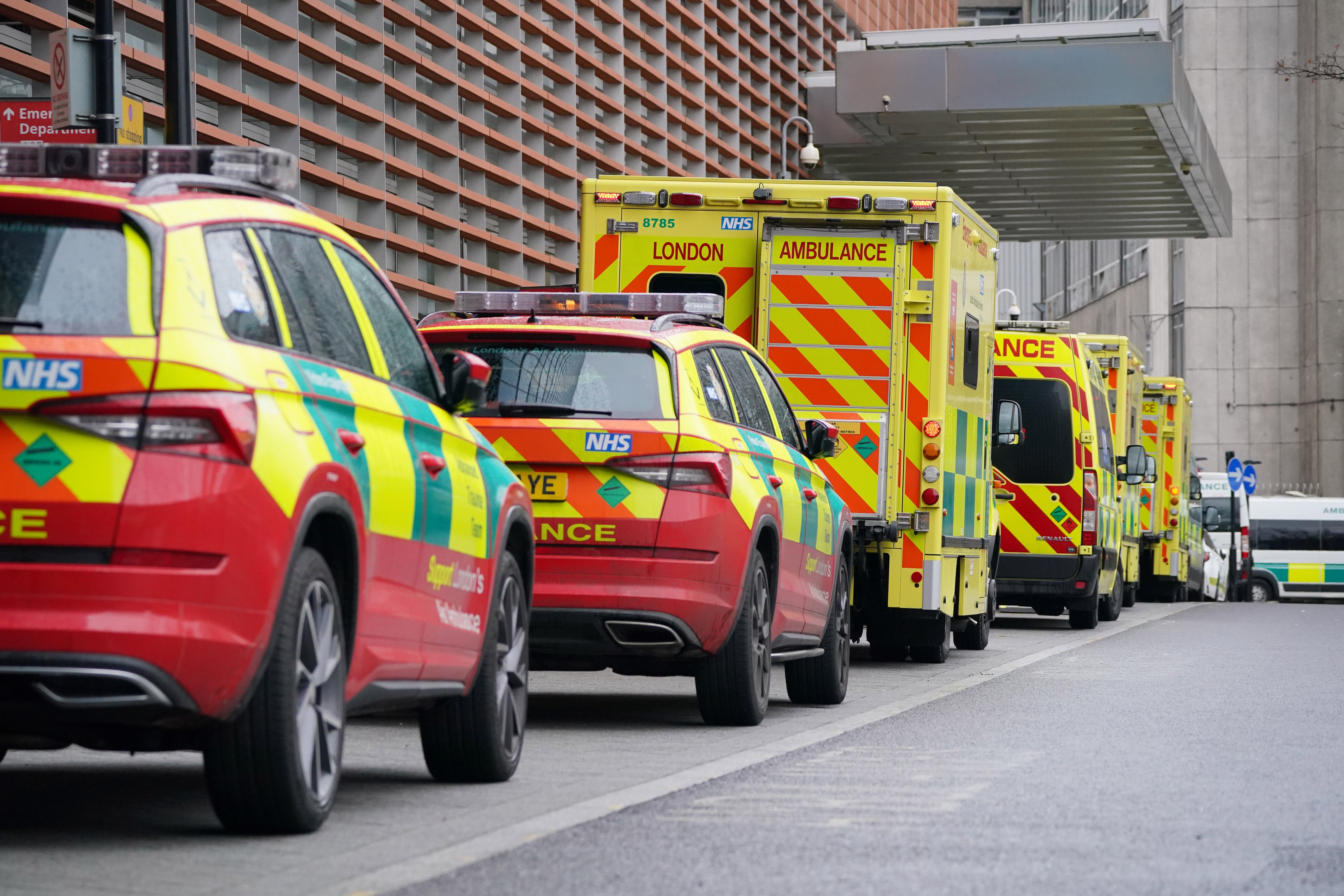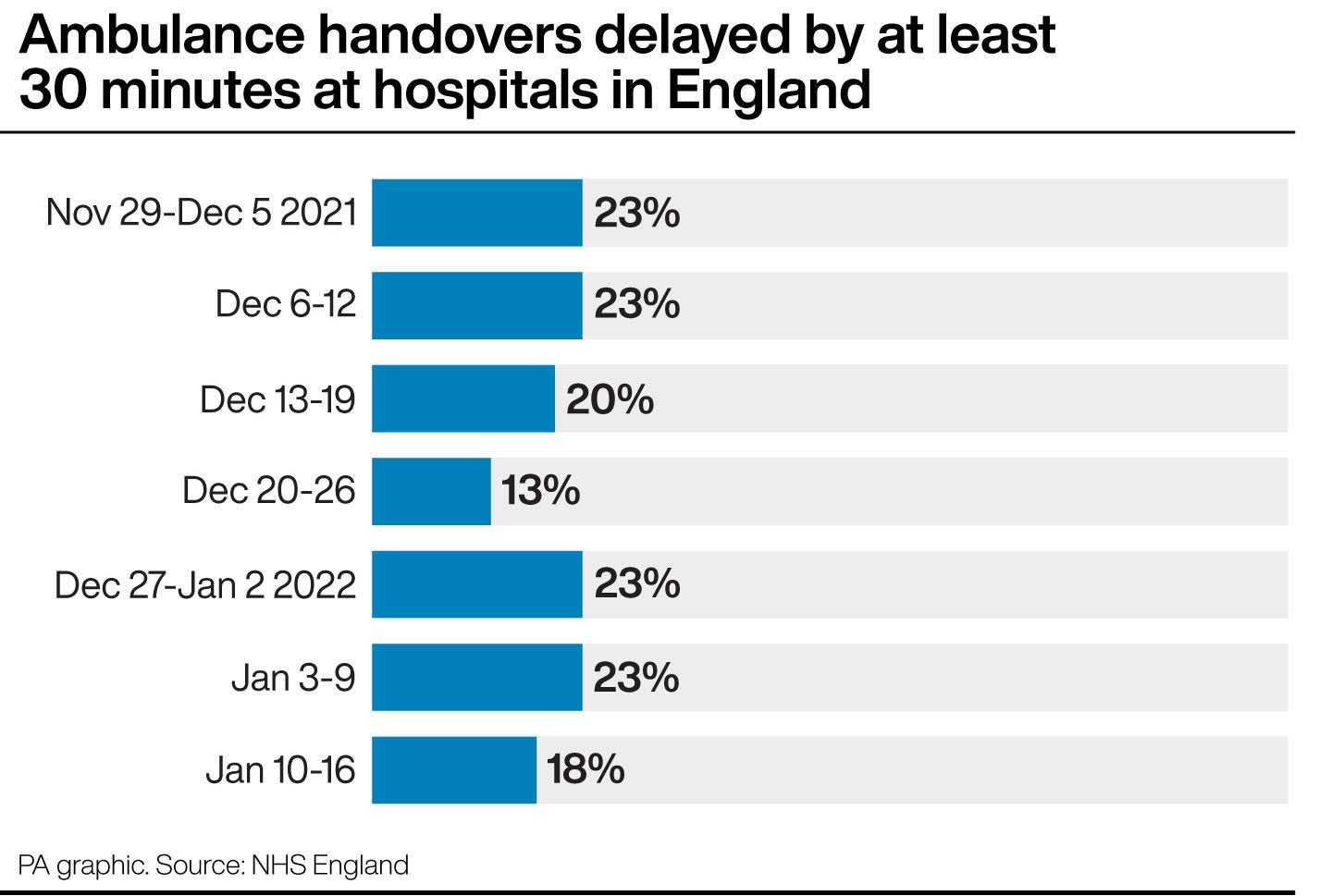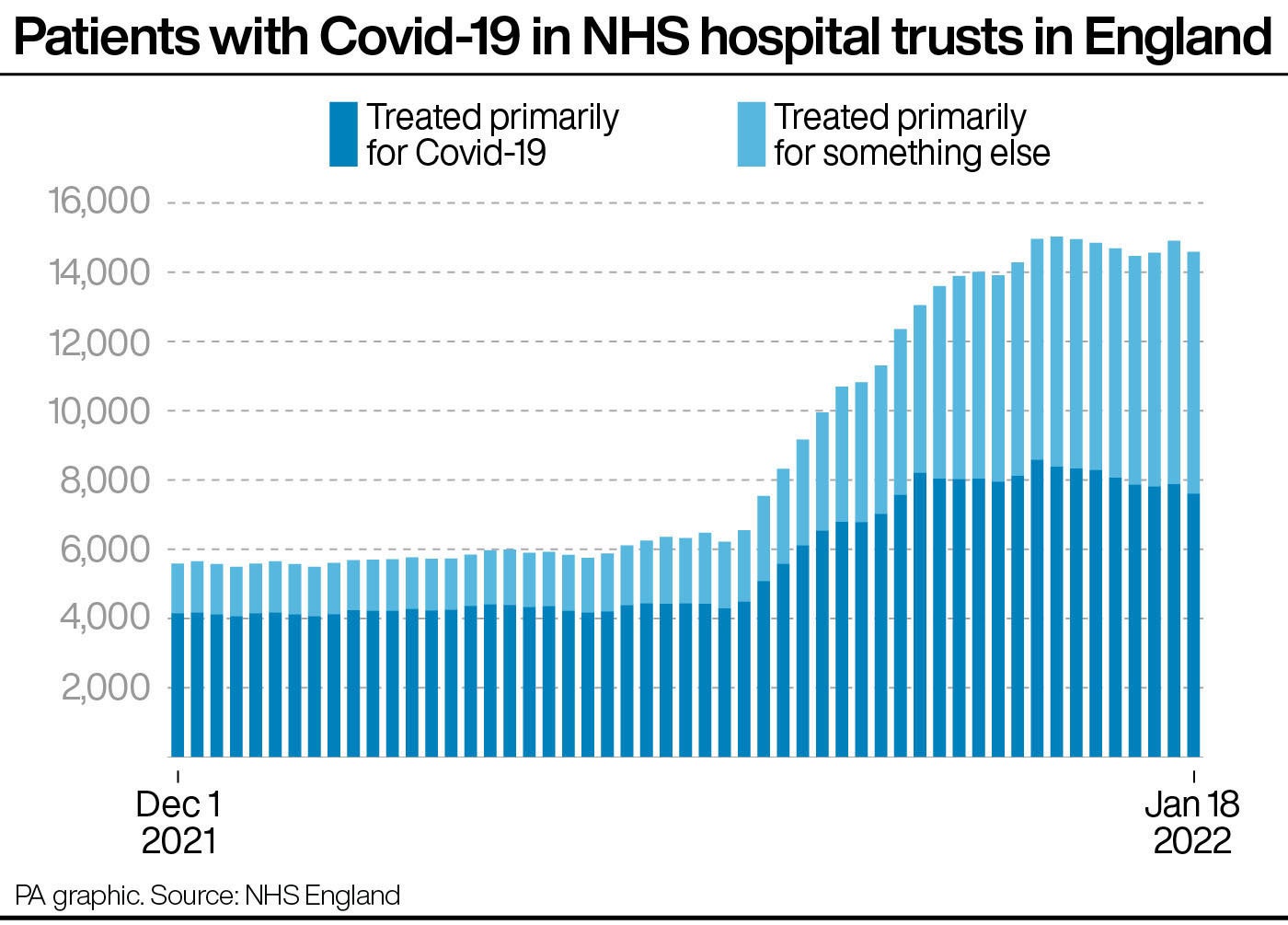Ambulance handover delays improve though pressure on hospitals ‘remains high’
Nearly one in five patients arriving by ambulance wait at least 30 minutes before being handed over

Your support helps us to tell the story
From reproductive rights to climate change to Big Tech, The Independent is on the ground when the story is developing. Whether it's investigating the financials of Elon Musk's pro-Trump PAC or producing our latest documentary, 'The A Word', which shines a light on the American women fighting for reproductive rights, we know how important it is to parse out the facts from the messaging.
At such a critical moment in US history, we need reporters on the ground. Your donation allows us to keep sending journalists to speak to both sides of the story.
The Independent is trusted by Americans across the entire political spectrum. And unlike many other quality news outlets, we choose not to lock Americans out of our reporting and analysis with paywalls. We believe quality journalism should be available to everyone, paid for by those who can afford it.
Your support makes all the difference.Ambulance handover delays at A&E departments in England improved slightly last week, though hospital pressures “remain high”, figures show.
A total of 14,961 delays of at least 30 minutes were recorded across all hospital trusts in the seven days to 16 January, representing 18 per cent of all arrivals.
This is down from 23 per cent in the previous week, which was the highest level so far this winter.

Some 7 per cent of arrivals last week (5,610) took more than 60 minutes to be handed over to A&E teams, down from 10 per cent in the previous week.
The figures have been published by NHS England
A handover delay does not always mean a patient has waited in the ambulance.
They may have been moved into an A&E department, but staff were not available to complete the handover.
Analysis of the data by the PA news agency shows that University Hospitals Plymouth reported the highest proportion of ambulance handovers that were delayed by at least 30 minutes last week, followed by University Hospitals Bristol & Weston, Gloucestershire Hospitals and Torbay & South Devon.
Royal Cornwall Hospitals topped the list for the proportion of arrivals that were delayed by more than an hour, followed by University Hospitals Plymouth, Torbay & South Devon and University Hospitals Bristol & Weston.
Hospital pressures in England “remain high”, with staff facing a growing number of routine checks as well as ambulance arrivals, NHS England said.
More than 93 per cent of general & acute beds were occupied last week, the equivalent of nearly 500 more adult patients per day than the previous week.
Staff absences due to Covid-19 have fallen week-on-week in every region, though most areas are still reporting higher numbers than at the start of December.

Separate figures published by NHS England on Thursday show that just under half of all patients in acute trusts are being treated primarily for something else.
Of the 14,588 patients reported as having the virus on 18 January 6,98 were not being treated principally for Covid-19.
This is the highest proportion since these figures were first published in June 2021, and is up from 26 per cent at the start of December 2021.
All hospital patients who have tested positive for Covid-19 need to be treated separately from those who do not have the virus, regardless of whether they are in hospital primarily for Covid-19 or not.
But the growing proportion of patients who are in hospital “with” Covid-19 rather than “for” Covid-19 is another sign that the current wave of the virus has not led to the same sort of pressure on critical care as in previous waves.
A total of 614 patients in all hospitals in England were in mechanical ventilation beds on 18 January compared with 773 at the start of December – and well below the 3,736 recorded at the peak of the second wave on 24 January 2021.